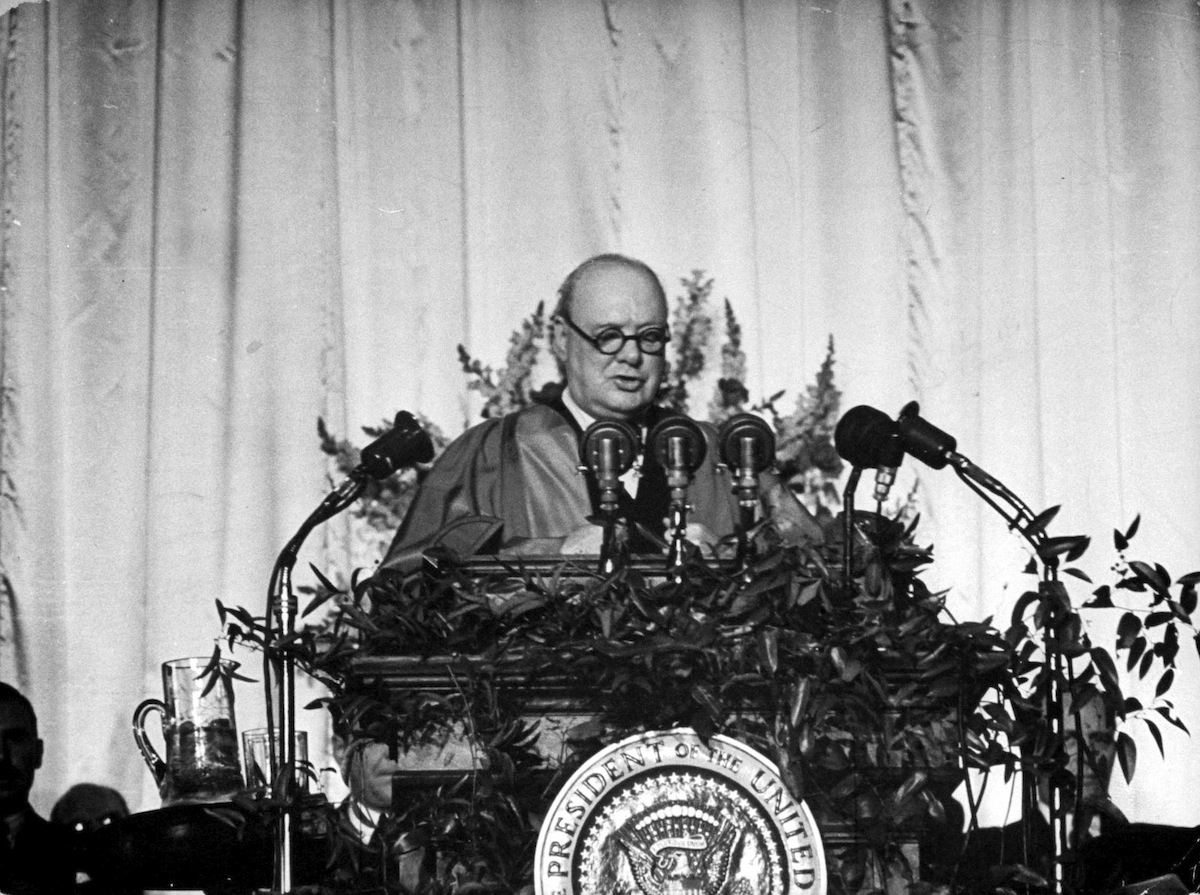At the beginning of 1946, things seemed to be looking up over much of the world. The Second World War had finally been won, and the world seemed briefly united in celebration and relief. Then, on March 5, 1946, along came Winston Churchill to spoil the mood with his Iron Curtain speech.
You see, in order to win the war and defeat the Nazi Axis, the Allied powers had to put aside their differences and work together, even if it wasn’t something they would ordinarily have dreamed of doing. Then, once the Nazi threat had passed, the alliance almost immediately crumbled, and new battle lines were drawn. It was Winston Churchill’s unenviable task to announce the new tensions to a world already weary of war.
Just a month earlier, the Premier of the Soviet Union, a former ally in the war, declared that war between the Soviet Union and the rest of the former Allies was inevitable. The steps he had taken in transforming Eastern Europe into a buffer zone of Soviet vassal states certainly made it seem like he was preparing for war. So the rest of the former allies decided they needed to take the threat seriously enough to announce the need for preparations to their citizens.
They chose Winston Churchill, who led Great Britain through the war, to deliver the news. He was, after all, famous for delivering powerful speeches. So on March 5, he stood before an audience at Westminster College in Fulton, Missouri, along with the U.S. President, and warned that the Soviet Union had draped an iron curtain across Europe in preparation for hostilities. And so, the Cold War began.

